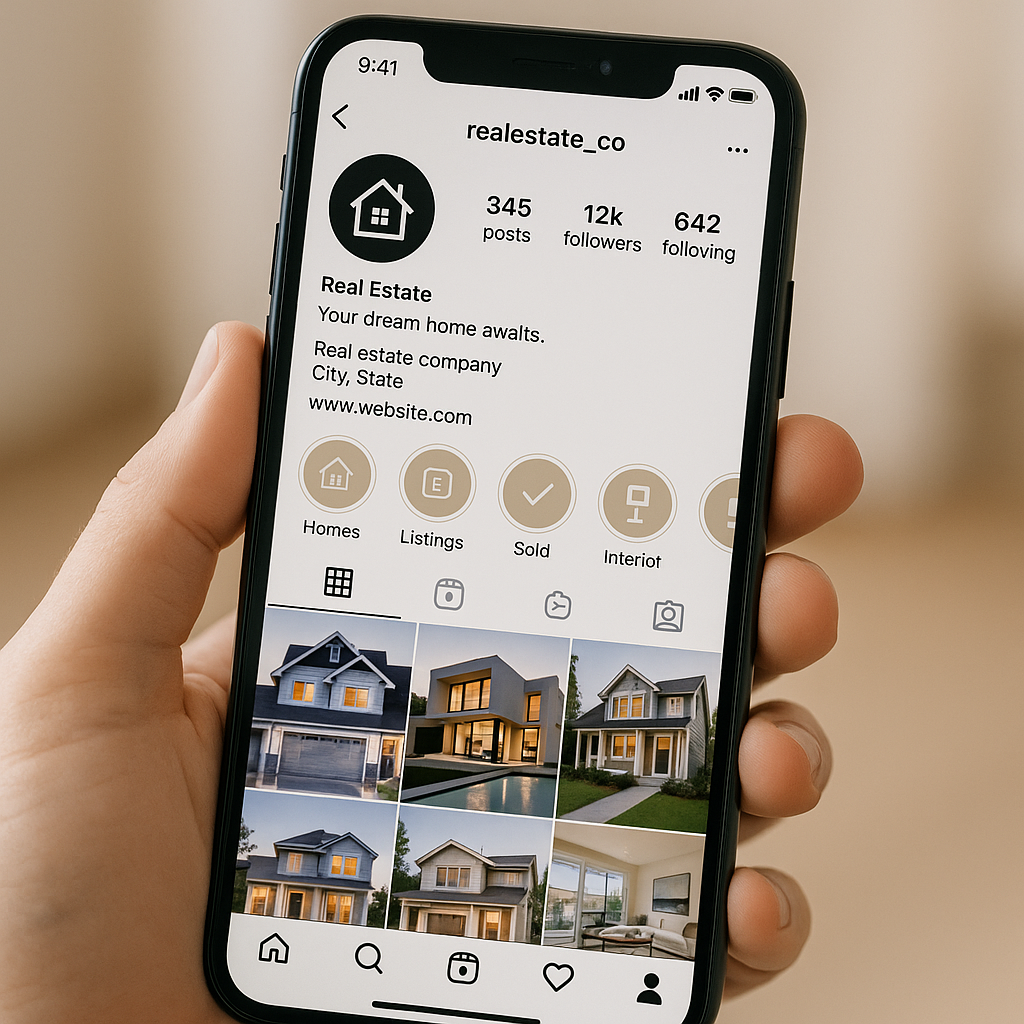How to Find the Best Keywords for Your Connecticut Business
Did you know 97% of consumers search online to find local businesses in Connecticut? Yet most small business websites fail to show up when these potential customers search.
Keyword research means finding the exact words and phrases your customers type into search engines. It helps you understand what Connecticut customers want and how they search for local products or services like yours.
This guide shows you the step-by-step process to find keywords that attract customers in your area, whether you're in Bristol, Hartford, or Stamford or any nearby cities. You'll learn which search terms bring qualified leads to your Connecticut business website and how to use them to increase your website traffic and sales.
You run a business in Connecticut. Your potential customers want to find you. Let's make sure they do. Let’s begin.
Understanding Your Connecticut Audience and Competition
Success starts with knowing your audience and competitors. Think of these as a sort of pre-requisites that you need to do to get a better understanding of what keywords you need to look for.
It may sound overwhelming, but let's break this down into three key areas.
Define Your Ideal Customer
Understanding who your ideal customer is lays the foundation for effective keyword research. Start by analyzing the demographics of your target audience in Connecticut:
- Age: Determine the age range most interested in your products or services.
- Location: Identify specific cities or neighborhoods within Connecticut where your customers are located.
- Income Level: Understand the spending power of your audience.
- Gender: If applicable, know whether your products cater more to a specific gender.
Next, consider their needs and challenges. What problems are they trying to solve that your business can address? Understanding their online behavior is crucial:
- Search Preferences: What type of information are they seeking?
- Devices Used: Do they primarily use mobile phones or desktops?
- Content Consumption: Do they prefer blogs, videos, or social media?
Here’s an example:
Imagine you run a family-owned bakery in Hartford, Connecticut. Your ideal customer might be parents aged 30-45 with children, looking for healthy and delicious baked goods.
They likely search for terms like “organic cupcakes Hartford” or “gluten-free bread near me” using their smartphones. By understanding these specifics, you can tailor your keyword strategy to attract these customers effectively.
Analyze Your Competition
Understanding your competitors' keyword strategies is essential for identifying opportunities and gaps in the market.
Start by using tools like SEMrush or Ahrefs to analyze the websites of your local competitors. Enter their URLs into these tools to access their top-performing keywords—the terms that are driving the most traffic to their sites.
Pay attention to keywords that have a strong local intent, meaning they include location-specific terms relevant to Connecticut. Look for patterns in the types of keywords they prioritize, such as service-based terms or product-specific phrases.
Additionally, evaluate the keyword difficulty scores provided by these tools to determine how challenging it would be to rank for those terms.
By understanding which keywords are working well for your competitors, you can refine your own keyword strategy to target similar terms or explore untapped niches that they may have overlooked.
Follow Connecticut Search Patterns
Staying attuned to local search trends helps ensure your keyword strategy remains relevant and effective.
For this, you may utilize Google Trends to gain insights into what Connecticut residents are searching for over time.
Start by entering your business type along with "Connecticut" to see how search interest fluctuates throughout the year.
Identify any seasonal patterns that may affect search behavior, such as increased searches for heating services in winter or landscaping in spring.
Additionally, compare search volumes across different counties within Connecticut to pinpoint regional interests and tailor your keywords accordingly.
Keep an eye on rising search terms that indicate emerging trends or changing consumer preferences.
Monitoring the impact of local events on search behavior can also provide valuable opportunities to capitalize on timely and relevant keywords.
By continuously tracking these search patterns, you can adapt your keyword strategy to align with the evolving needs and interests of your Connecticut audience.
Keyword Research Techniques and Best Practices
Seed Keyword Brainstorming
Starting your keyword research begins with seed keyword brainstorming. These are the foundational keywords that reflect your core offerings and your customers' needs.
- Generate Initial Ideas: Think about the main products or services you offer. What terms would customers use to find them?
- Incorporate Location-Based Modifiers: Add specific locations to your keywords to target Connecticut customers. For example, use phrases like "Avon catering services" or "Fairfield County electrician".
- Think Like Your Customer: Consider the questions your customers might have. What problems are they trying to solve? What language do they use when searching online?
By focusing on these aspects, you create a list of relevant keywords that accurately represent your business and attract the right audience.
Keyword Research Tools
Equipping yourself with the right tools is crucial for effective keyword research. These tools help you discover, analyze, and refine your keyword list.
Free Tools
- Google Keyword Planner: Ideal for finding basic keyword ideas and seeing search volumes. However, it offers limited insights compared to paid tools.
- Ubersuggest (Free Version): This tool provides keyword suggestions and basic competitive analysis. While useful, the free version restricts the number of searches you can perform daily.
- AnswerThePublic: Great for uncovering the questions people ask related to your keywords. It helps you understand user intent but may lack comprehensive search volume data.
Paid Tools
- SEMrush: Offers in-depth keyword analysis, including competitor insights and keyword difficulty scores. It helps you identify high-potential keywords that can drive traffic.
- Ahrefs: Known for its extensive backlink data and keyword research capabilities. It provides detailed metrics to help you choose the best keywords for your strategy.
- Moz Keyword Explorer: Focuses on keyword discovery and SERP analysis. It helps you prioritize keywords based on their potential impact on your SEO efforts.
These paid tools provide advanced features and comprehensive data that go beyond basic keyword suggestions. They also analyze how difficult it is to rank for a keyword and the intent that goes behind it.
As you can tell. they are essential for identifying the best keywords that align with your business goals and have the highest potential to attract targeted traffic.
Keyword Analysis: Separating the Wheat from the Chaff
Analyzing your keywords is crucial to ensure they deliver the best results for your Connecticut business. It’s akin to separating the wheat from the chaff.
After all, you wouldn’t want to waste your time ranking for a worthless keyword. For an effective analysis, focus on these three main aspects:
- Search Volume vs. Competition: Aim for keywords that have a decent search volume but manageable competition. This balance helps you attract traffic without facing overwhelming competition.
- Keyword Difficulty: Use tools like SEMrush and Ahrefs to assess how hard it is to rank for a particular keyword. Prioritize keywords with lower difficulty scores to secure easier and faster rankings.
- Relevance and Intent: Ensure your keywords align with your business offerings and the searcher's intent. Identify whether the intent is:
- Informational: Seeking information (e.g., "how to choose an electrician in Burlington")
- Transactional: Looking to make a purchase (e.g., "buy organic cupcakes Andover")
- Navigational: Trying to reach a specific site (e.g., "CAM Marketing Group website")
Mining Your Website Data
Aside from the tools that we mentioned above, you can also utilize Google Search Console and Google Analytics to uncover valuable keyword insights:
- Identify Current Rankings: See which keywords your website is already ranking for and their performance.
- Spot Opportunities: Find keywords with potential that you’re not fully capitalizing on, allowing you to enhance your content and improve rankings.
Target Low-Hanging Keywords
A low-hanging keyword is a search term that has a reasonable search volume but low competition (or keyword difficulty), making it easier for your website to rank higher in search engine results pages (SERPs).
These keywords are often more specific or niche, targeting particular aspects of your business that larger competitors might overlook. By focusing on low-hanging keywords, you can attract highly targeted traffic without the intense competition associated with more generic terms.
This approach allows your Connecticut business to achieve quick SEO wins, boosting your online visibility and driving meaningful traffic to your site with less effort compared to battling for highly competitive keywords.
Here’s a quick guide on how to find low-hanging keywords in your niche:
- Long-Tail Variations: Focus on longer, more specific keywords that usually have less competition. These keywords attract highly targeted traffic.
- Competitor Keyword Analysis: Look for keywords your competitors rank for on the second or third pages of search results. These are prime targets to outrank them.
- Use Keyword Research Tools: Tools like SEMrush and Ahrefs offer filters to find low-competition keywords. Apply these filters to streamline your search for easy wins.
- Question-Based Keywords: Incorporate questions people are asking, which often have lower competition and match informational search intent. This approach aligns your content with what your audience is seeking.
Conclusion
As you can tell, keyword research is quite a meticulous process. It involves a lot of planning, research, and analysis to uncover the best keywords for a local business.
It’s not just randomly selecting words or phrases that your customers MIGHT be looking for on Google. We don’t just hope for the best here because going for the wrong keywords can cost you a lot of time and hundreds, or even thousands of dollars.
So take the time to find the ones that can truly connect you with your target audience and drive meaningful traffic.
By using the techniques outlined in this guide, you can discover your own keyword goldmine.
Ready to take your keyword research to the next level?
Reach out to CAM Marketing Group today for a personalized SEO audit and consultation. Let us help you optimize your website and reach more customers in your area.





